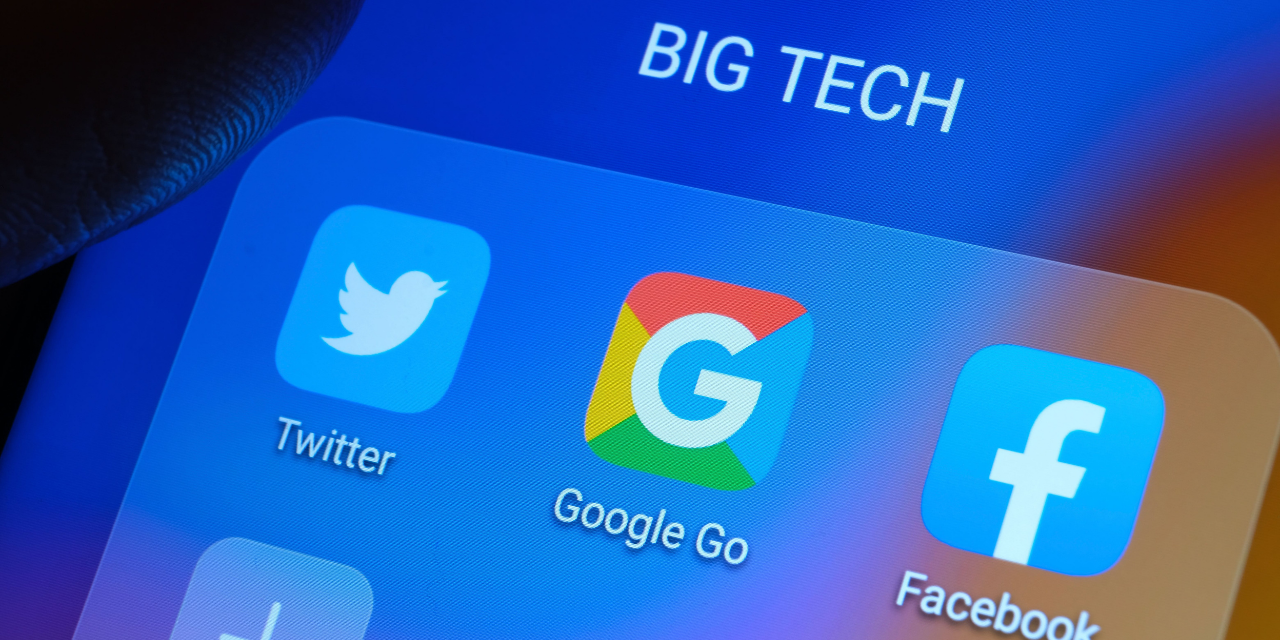A new “discussion draft” of a congressional bill to hold Big Tech platforms accountable for censoring content has been released by two members of the U.S. House of Representatives. It removes the blanket liability protections that large internet companies currently enjoy under Section 230 of the Communications Decency Act of 1996 and provides more rights to the users of their platforms.
For years, conservatives have expressed frustration with companies such as Facebook, Twitter and Google for censoring content the big tech companies don’t agree with philosophically. Those frustrations have boiled over into multiple hearings on Capitol Hill where senators and representatives took turns grilling the likes of Mark Zuckerberg, CEO of Facebook, Jack Dorsey, CEO of Twitter, and Sundar Pichai, CEO of Google. States like Florida have already legislated prohibitions and fines against social media platforms for censoring political candidates.
Even Supreme Court Justice Clarence Thomas has opined that Big Tech ought to be treated more like “common carriers” which historically have been subject to such government regulations as the “requirement to serve all comers.”
Now, House Energy and Commerce Committee Republican Leader Cathy McMorris Rodgers, R-Wash., and House Judiciary Committee Ranking Member Jim Jordan, R-Ohio, have released a “discussion draft” of a bill that will amend Section 230 to address internet platforms that are so large that their policies impact a great swath of speech occurring daily on social media.
In a press release, Rodgers and Jordan explain the need for the bill.
“Big Tech can no longer be allowed to hide behind Section 230,” Rodgers stated. “Today, we are releasing our solution to remove Big Tech altogether from Section 230 and put them under new obligations that will hold them more accountable for censoring Americans. It’s time to expose Big Tech’s bias and make sure they treat constitutionally protected speech fairly.”
The bill accomplishes the following:
- Removes large companies from Section 230 blanket liability protections.
- Holds major platforms accountable for the decisions they make related to content moderation. Furthermore, any future protections they receive would only be related to speech not protected by the First Amendment.
- Empowers Americans to challenge censorship and deplatforming by requiring these companies to implement and maintain user-friendly appeals processes.
- Exposes censorship by requiring these companies to file quarterly disclosures that are made publicly available.
- Forces Congress to re-evaluate Big Tech’s behavior related to speech again in five years to ensure they are held accountable.
- Protects innovation and small businesses by targeting these new obligations only to large companies.
Section 230 was originally intended to promote free speech on the internet by eliminating the potential for liability for those providing the platforms where the speech occurs. It also protected platforms that, in good faith, took steps to restrict material that might be “obscene, lewd, lascivious, filthy, excessively violent, harassing, or otherwise objectionable, whether or not such material is constitutionally protected.”
Anyone who uses Facebook or Twitter, however, has probably noticed that their “community standards” policies have resulted in much more censorship of speech than Section 230 contemplated. And the culprit might be the inclusion of the overbroad term, “otherwise objectionable,” in the statute.
And when platforms like Twitter and YouTube started blocking conservative news outlets such as The Daily Citizen and LifesiteNews over the conservative news perspective of those sites, the flaws in Section 230 become even more apparent.
What’s next for this “discussion draft?”
Rodgers and Jordan intend for this bill to form part of a comprehensive package of bills to hold Big Tech accountable.
“The goal for these drafts is to lead to concrete legislation and reforms,” according to the Rodgers/Jordan press release. “The Energy and Commerce Committee is asking for stakeholder and public engagement on these draft bills as part of their thoughtful process in the E&C Big Tech Accountability platform to drive meaningful change.”
Photo from Shutterstock.






